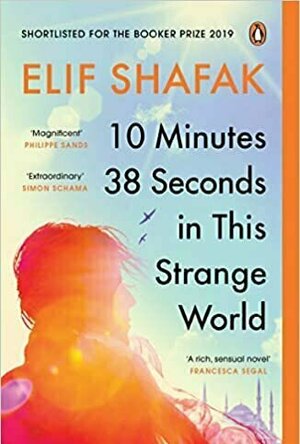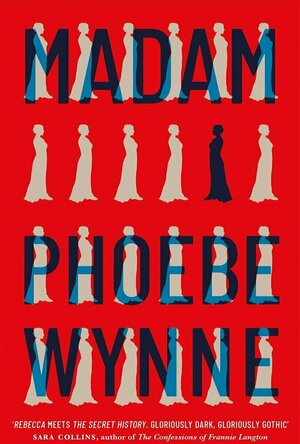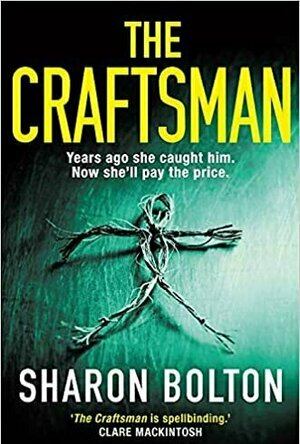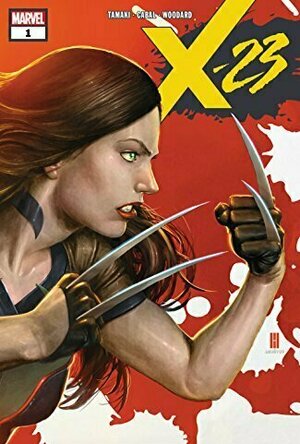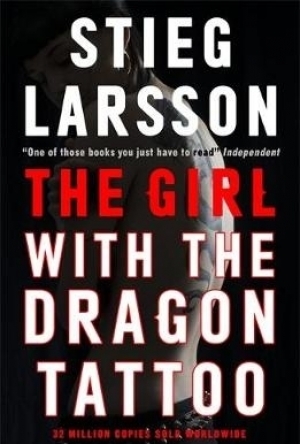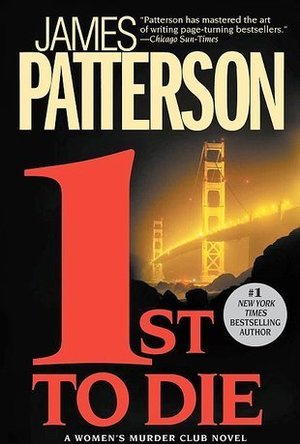
1st to Die (Women's Murder Club, #1)
Book
James Patterson, bestselling author of the Alex Cross novels Along Came a Spider, Kiss the Girls,...
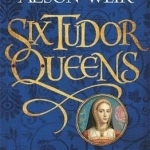
Six Tudor Queens: Katherine of Aragon, the True Queen: Six Tudor Queens 1
Book
*A Sunday Times Top Ten Bestseller* Katherine of Aragon: The True Queen by bestselling historian...

From the Fatherland with Love
Ryu Murakami, Charles De Wolf, Ralph McCarthy and Ginny Takemori
Book
An ambitious, epic dystopian novel - part political thriller and part satire. From the Fatherland,...

Bonita Avenue
Book
A darkly hilarious tale of a model family's disintegration. Professor Siem Sigerius - maths genius,...
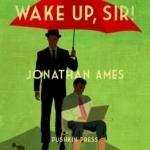
Wake Up, Sir!
Jonathan Ames and Jamie Keenan
Book
A brilliant contemporary reimagining of the greatest comic relationship of all time, which goes far...
Melanie Caldicott (6 KP) rated 10 Minutes 38 Seconds in This Strange World in Books
Apr 29, 2021
I saw this book reviewed on The Sky Arts Book Club and Shafak was interviewed and I think I fell a little in love. Shafak is a beautiful human being who is currently self-exiled from Turkey to the content of her novels being subject to investigation as part of a legal movement in which writers are frequently prosecuted. A passionate storyteller, who writes openly about human rights, her protagonists are often the fallen, forgotten and marginalised. Needless to say I have been looking forward to reading this ever since.
10 Minutes 38 Seconds in this Strange World is a novel about a murdered street walker, Tequila Leila and the last moments of brain activity that is said to occur after the heart has stopped beating. The memories of her life flood back, often related to taste and smell and we start to learn about the story of her life.
Central to her memories and providing a backbone to her life were The Five, – five people with which she formed close, integral friendships and in the absence of her blood relatives, are Leila’s “family”.
The book is structured around three parts – the first, The Mind telling the stories of her post-mortem memories, the second, The Body about how she was murdered and the impact it has on The Five, and finally, The Soul which is a touching finale in which The Five determine to give Leila the send-off she deserves.
Shafak is such a clever storyteller and is able to illuminate aspects of humanity which is often avoided or ignored, which make us feel uncomfortable, and yet her tenderness and compassion shine through the portrayal of all her characters enabling the reader to walk a mile in the shoes of those who are often forgotten.
For a book centred around death, an issue that rarely sits comfortably with human beings, 10 Minutes 38 Seconds in this Strange World confronts it without fear. She skilfully takes a sex worker’s body which is disregarded in its anonymity by those that are responsible for sweeping up the detritus of the Istanbul streets, and reveals a story of a life, full of tragedy, joy and love.
I love how Elif Shafak takes the stories of all of The Five and transforms the insignificant to the significant through the love they have for Leila and each other. In a society which elevates the rich and famous and makes their voices the loudest and most significant in the world, I loved the truth which was affirmed in this book about what a life of substance really means.
BookInspector (124 KP) rated Madam in Books
Jul 1, 2021
I found the narrative of this book mysterious and very enjoyable. Rose is trying to find out more about the events happening in this school, but everything is so secretive, she gets only bits of information. I am not surprised she feels so frustrated. All of that creates a perfect mystery and suspense because I was so keen to find out, what was actually happening there. This book has plenty of issues to be discussed. It portrays only Rose’s perspective, she is from a lower class and has no idea how rich and influential people operate. So what seems outrageous to her, might seem very normal to rich people. I really enjoyed the ancient mythology that was in this novel, I loved the stories of powerful women from the past. The topics discussed in this book are arranged marriages, suicide, mental health issues, ignorance, friendships, homosexuality, teenage manipulations, lack of feminism, various secrets, and many, many more. This novel really highlights a very wide variety of topics.
The whole story is set in 1993, so it does show the struggles people had during those days, especially when it comes to technologies and communication. I enjoyed the writing style of this book, it was very atmospheric and dark. I really can see this novel as a film, it would be brilliant! The chapters of this book have medium length and it had me very engrossed in this story. I don’t really know what I think of the ending, it rounds up the story nicely, but for some reason, it didn’t really leave me satisfied.
So, to conclude, it is a very gloomy and dark novel, filled with unique characters and a plot filled with secrets and mystery. This book is perfect for discussions, it has a very wide variety of topics. I think it would be great for reading groups or readalongs. I would recommend it to anyone who enjoys gothic novels, or books set in strange boarding schools.
BookInspector (124 KP) rated The Craftsman (The Craftsman, #1) in Books
Sep 24, 2020
The story is set in a small town with a hill, where witches were meeting since the 16th century. As you can see in the description above, this story is told in two different times – 1969 and 1999. In 1969 Florence was a WPC in the local police station, which she recently joined. Moreover, she was the first woman in that station, surrounded by men, who are not very friendly. She is assigned a disappearance of three teenagers, but what she discovers is way more complex and sinister than she could imagine.
Florence is the protagonist of this novel, and this story is told from her perspective. I love strong, smart and rebellious female leads in the books, and I absolutely loved Florence. Even though she is facing cruel workplace bullying and constant demeaning behavior, she is still fighting for what she believes to be right, and she wipes noses to those stuck up men. BRAVO! 😀 I really liked the wide variety of characters, which Bolton offered in this novel. All of them were very well rounded and unique personalities, who brought more richness to the book.
The narrative of this book was very well planned out and delivered. I was sucked in from the first pages of this book, I just wanted to find out what in a world was going on there! I really enjoyed all the twists, turns and diversions which Bolton creatively incorporated in this book. Sharon Bolton always follows an intriguing topic in her novels, and I am very glad that she was discussing workplace bullying and sexism, alongside witches and witchcraft. Even though I am not a believer in witchcraft, It was amusing to read about the people who believe in it and practice it.
Sharon Bolton is a very talented storyteller, she has a very absorbing and suspense building writing style, which I thoroughly enjoy every time. I loved the setting of this book, it compliments the atmosphere of this book with all those mills, hills, cemeteries and complex houses. The pages just fly while reading those short chapters. The climax was absolutely unexpected and left me very surprised. So, to conclude, for now, this book was the best read of 2018 for me. I enjoyed it from first to the last page, I think it has very intriguing and absorbing characters and very well crafted narrative, which is fast paced and very amusing. I do strongly recommend this book, I think you are in for a treat. Enjoy! 🙂
Joe Goodhart (27 KP) rated X-23 (2018-) #1 in Books
Nov 30, 2020
When it was announced several months ago that Tom Taylor's ALL-NEW WOLVERINE would be coming to a close, I was saddened. While I didn't always like the light-hearted approach, esp. when it involved Laura's clone "sister" Gabby, I felt that he had done so much to move Laura forward, allowing to become so much more than a) a female version of Wolverine and b) another cold-hearted mutant killer.
Laura's book would be relaunched as 'X-23', with her Wolverine title being traded in for her old Weapon X classification. Canada's Mariko Tamaki (SUPERGIRL: BEING SUPER mini for DC as well as non-superhero prose novels) would be helming it, with ANW's Juann Cabal would be joining her on the art end. I felt good about the art side of it, but I was not all that familiar with Tamaki, as I had never read anything she written previously.
My biggest fear in regard to the new series? How was Laura going to go back to her former title/classification? It made no sense, and considering how they handled her transition into Wolverine (um, yeah, nope. Marvel dropped the editorial ball when ANW was launched!), my worries did not seem entirely unfounded.
Last night, I had those fears shushed away, as I dove into reading the digital version of Tamiki's X-23 (thank you, Comixology, for allowing the first three issues to be included as part of this weekend's BOGO sale). From Cabal's A-MAZ-ING art, to Tamiki's superb handling of Laura (both her inner thoughts and dialogue, as well as her interactions with Gabby), this was such an UNEXPECTED WiN
And a minor spoiler-of-sorts, Issue 3 has Laura saying why she has chosen to go back to being X-23. Not going to say anything more, other than it makes sense. Oh, and that it was this reveal that made me decide to start reading the new series.
As I said, I was not sure about the new series, but after devouring the first issue, i feel safe now having withnessed Tamaki's approach to Laura. There is no scale in mind that can showr Ms. Tamaki with the amount of praise she has earned for this brilliant undertaking! Color me impressed!
RECOMMENDED!!
Eleanor Luhar (47 KP) rated The Girl with the Dragon Tattoo in Books
Jun 24, 2019
This is a very different book to what I usually read. It contains a lot of strong language, sexual references, assault and Swedish finance. It also has a lot of investigating, which was my favourite part.
A financial journalist, Mikael Blomkvist, has been accused of libel after submitting a report about a rival company, owned by Hans-Erik Wennerström. The Wennerström Affair is huge - and has earned Blomkvist a three month stay in prison. This was all a bit hard for me to follow, as I don't know much about this subject. But I still managed to get the general gist of it.
A freelance worker at Milton Security is hired to research Mikael Blomkvist. Her name is Lisbeth Salander, and she's only in her twenties. Even so, she's probably the best worker Dragan Armansky has hired.
The client wanting a report on Blomkvist, Herr Frode, works for Henrik Vanger of the massive Vanger Corporation. Pleased with what they hear, they hire the journalist for a private matter - to solve the mystery of a missing girl from the 1960's.
While Blomkvist is researching the suspected crime, Lisbeth Salander is molested and raped by her legal guardian. She should turn him into the police, but that isn't her style. Instead, she gets her revenge.
Blomkvist finds out about the report written on him, and seeks out Salander. Together they begin to crack the case of Harriet Vanger. They are both put at risk when they discover the reason for Harriet's disappearance, and nobody's prepared for what they uncover.
Although the case is solved, the company Blomkvist works for - Millenium - needs revenge against Wennerström. To his surprise, Salander has just what he needs to really make a bang.
Like I said, this is quite an explicit novel - fathers raping their children, guardians attacking vulnerable young women, men sleeping with multiple women. The relationships seem to be ever-changing in this novel, but I suppose that's just realistic. But this is definitely not suitable for the faint-hearted, and there are some really horrific, visual descriptions that really will haunt you.
But if you like investigative or crime novels, I would definitely suggest giving it a go. It's not a quick read by any means, but it's cunning, it's realistic, and it's gripping. What more could you want from a novel of this genre? I really wasn't sure at first, as I just couldn't get into the multiple characters' stories or the whole situation with Mikael Blomkvist, but I did manage to get into the rhythm of it in the end, and really did enjoy it. For these reasons, I'm going to give Larsson's novel 4 stars. I'm seriously hoping I come across the next books in the series now!
